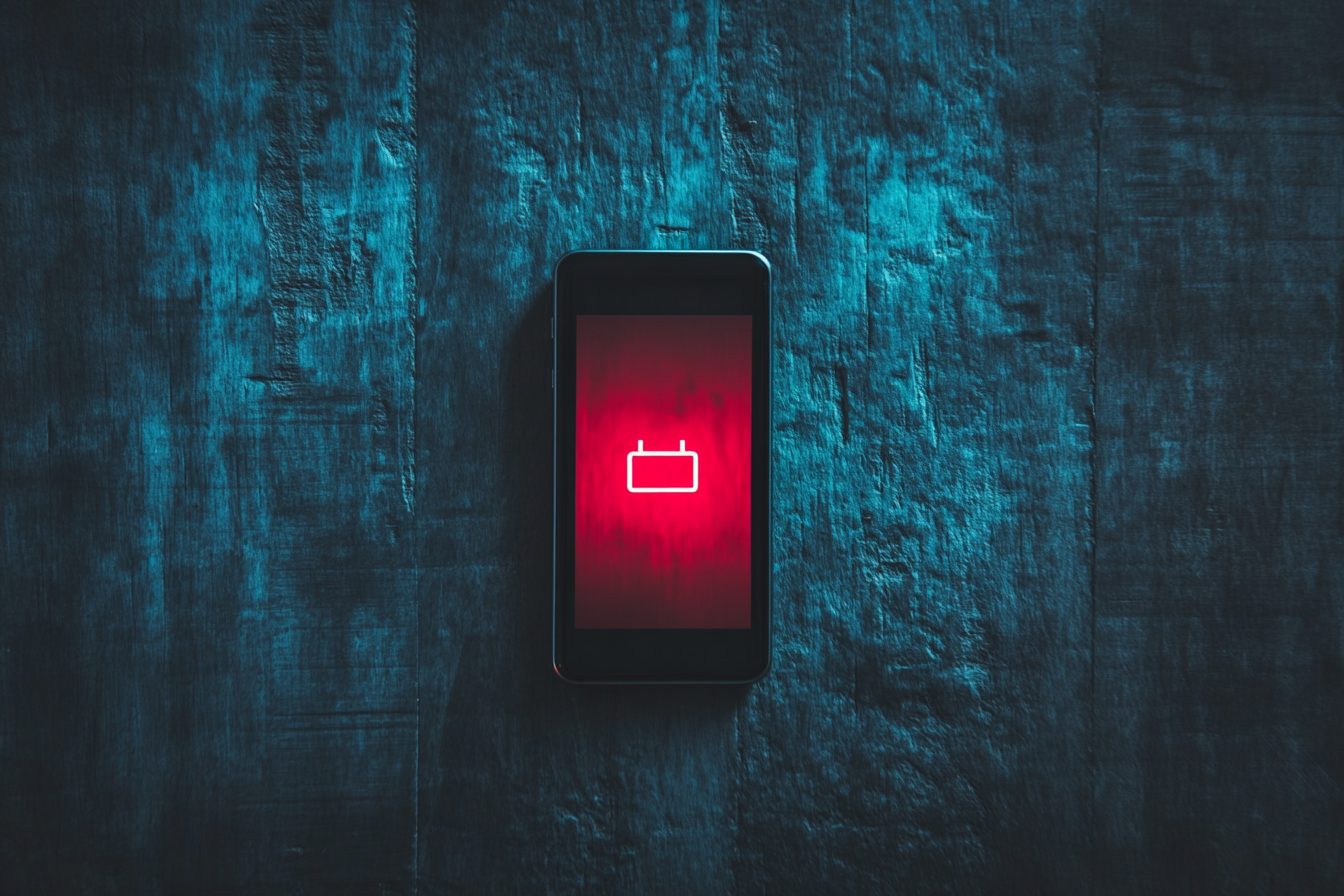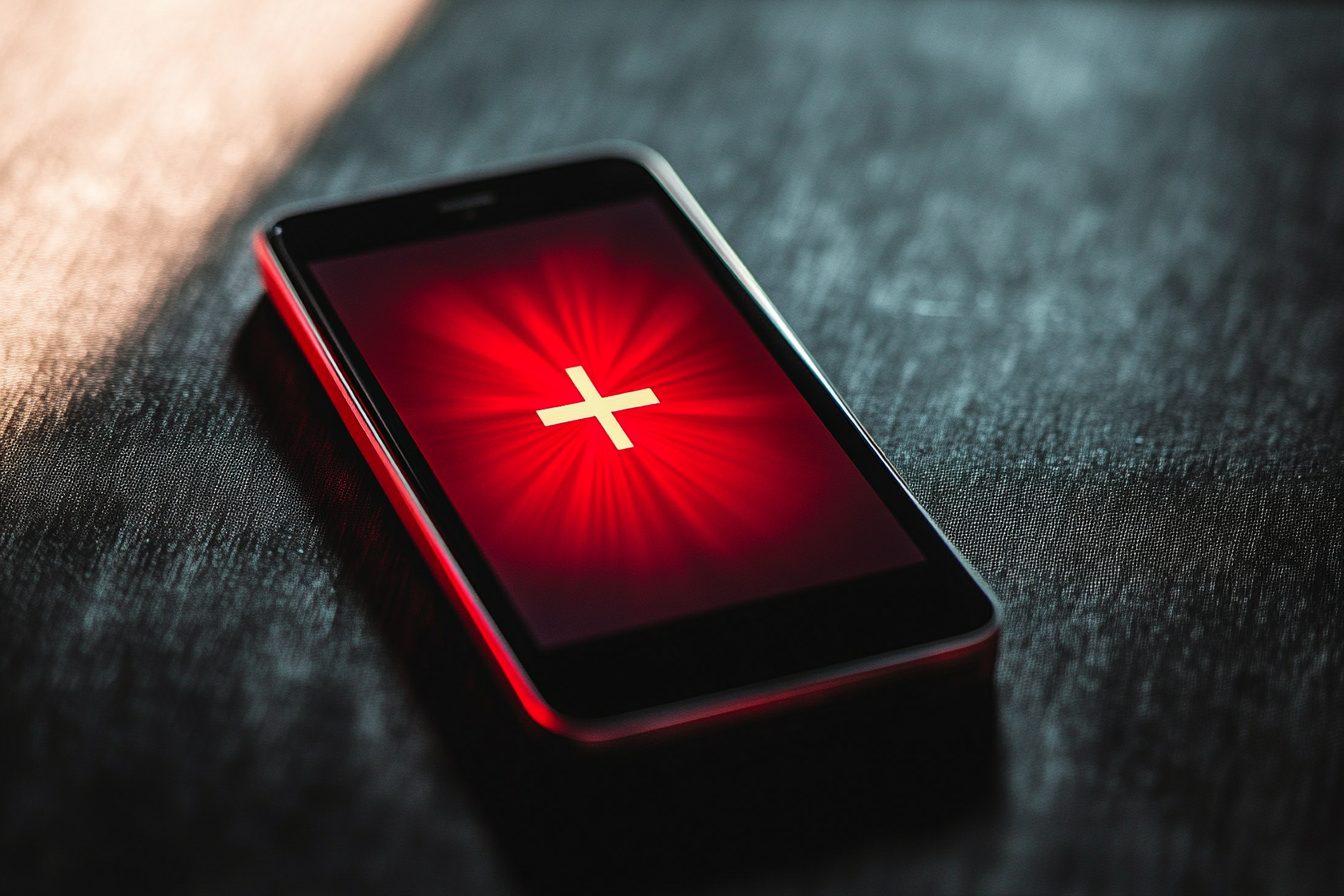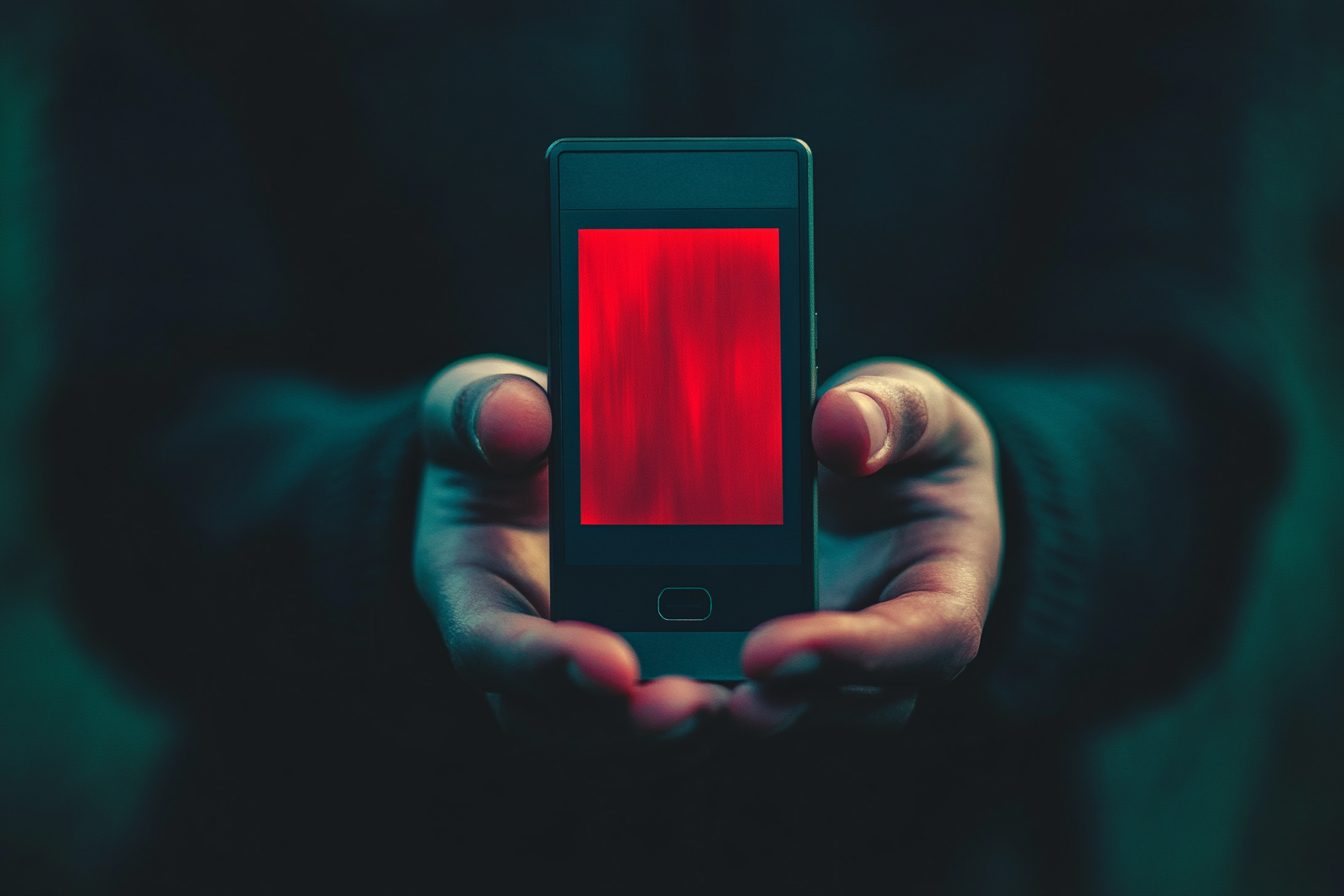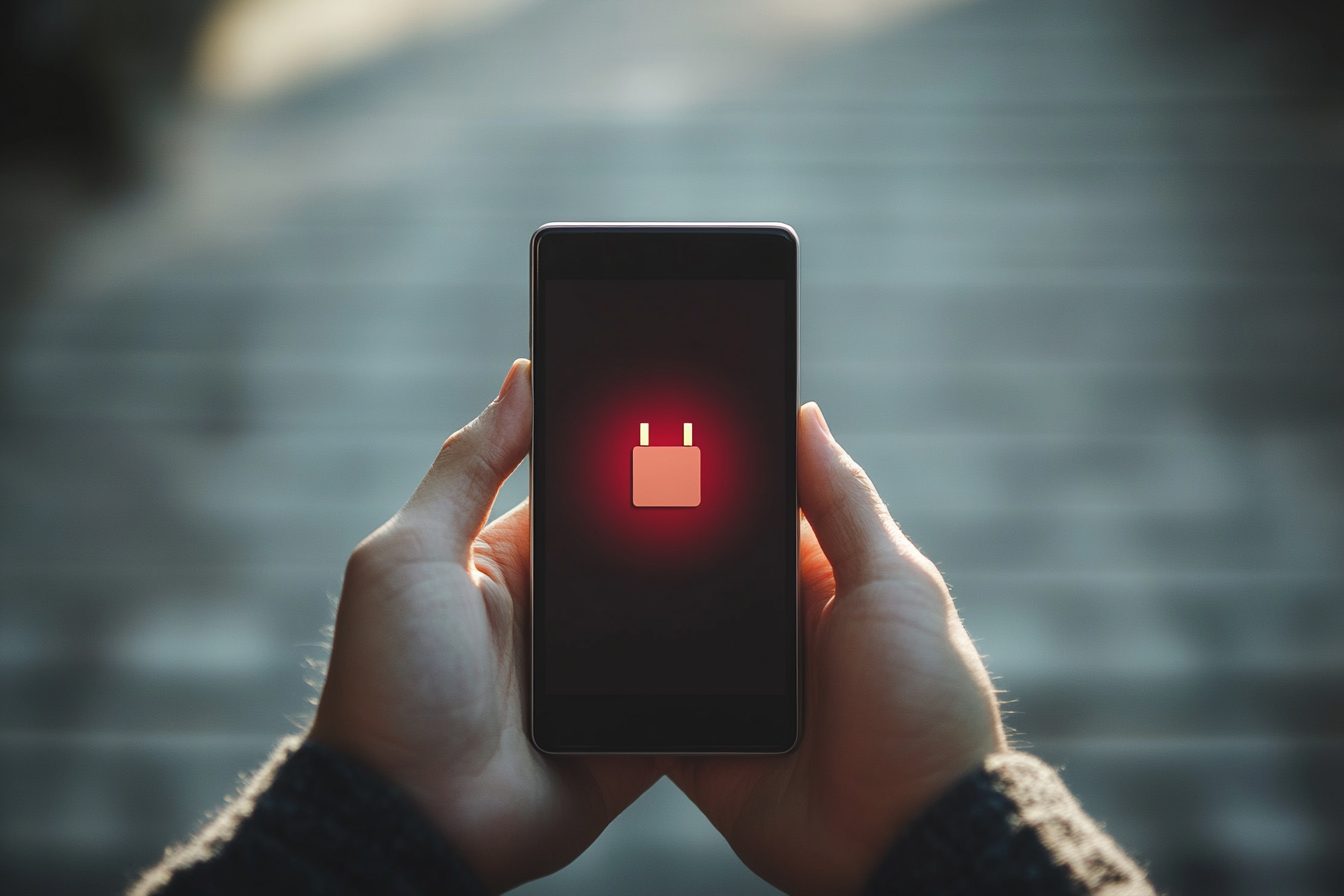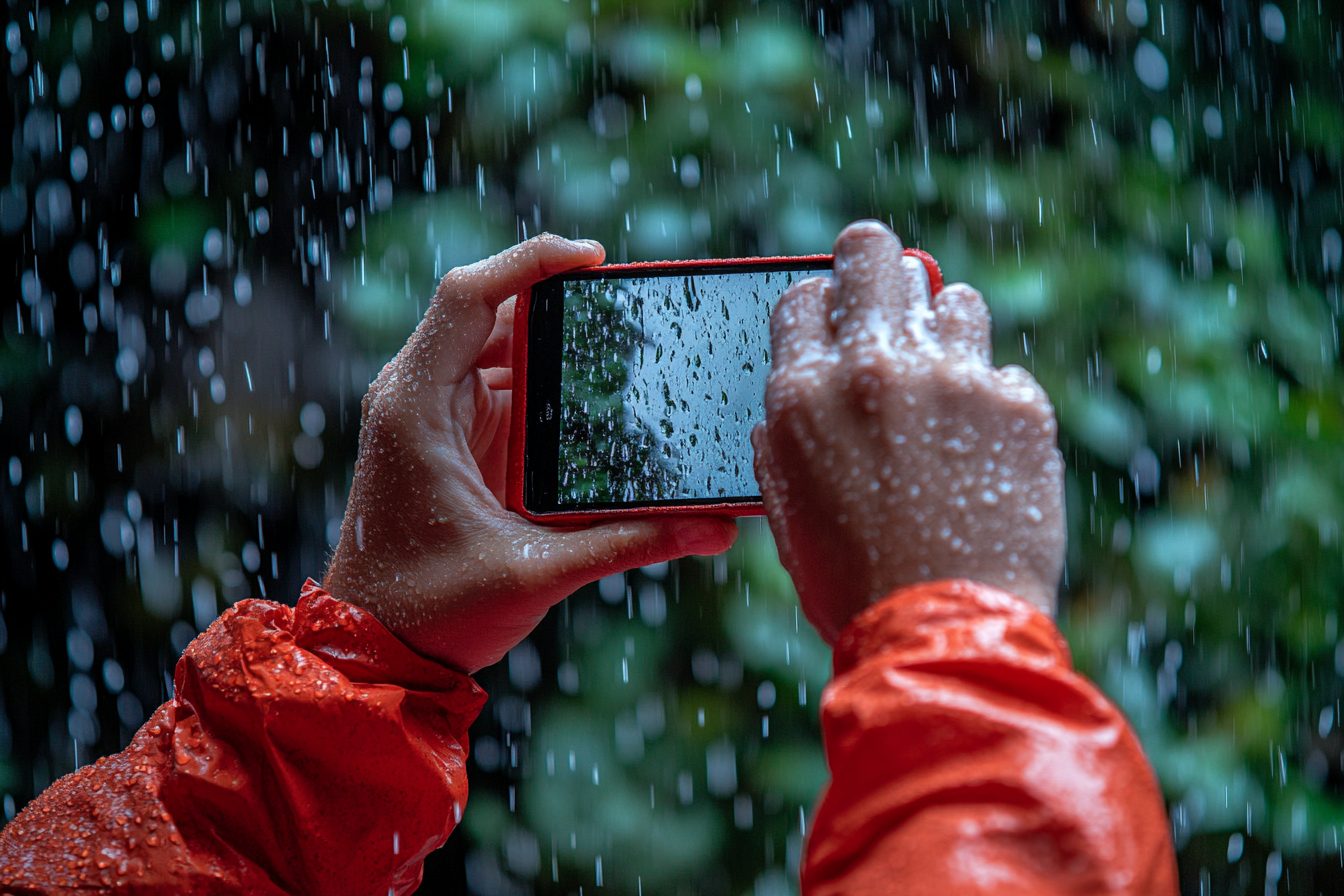My anxiety mounts as soon as a visual hint appears warning me of the worst—the moment the battery meter flashes ominously red. Now I need to deal with the discomforting patter of my heart, a light sweat forming on my brow, and most dangerously, a powerful need to look for a charging station; all this while trying to avoid “battery anxiety.” It stems from a modern emotion alongside the pronounced fear of death, public speaking or even heights. When delivering a talk at a tech conference a month back, I was gifted the opportunity to experience this peculiar effect in its full glory.
To my dismay, I saw that my phone’s battery had dropped to an unacceptable 9% while using it to change slides during the presentation. The disconcerting red icon indicating low battery was also visible. While the rational part of my mind overworked during the presentation and continued dissuading the anxious energy-draining thoughts, my heart seemed less convinced. I was ready with my backup notes, the slides were already uploaded to the conference system, the video was being recorded, and for all that is good, the presentation was done.
The riled portion of my mind – the uncontrollable and more bizarrely loud section – had uncontested access to irrational reasoning, diverting every ounce of mental capacity toward forecasting the best way to handle a possible power crisis. During my talk about the power outage, I caught myself looking for power points on the stage: was it possible to discreetly signal to my Obama-style moderator that a power socket was badly needed, so I wouldn’t have to hide the mental math I was doing for the battery life remaining? I did manage to stay focused, but my inner monologue about the proper use of tech…well, at least that part remained uninterrupted.
The very first cellphone I had—a brick of a thing—would lose its charge after incessant use throughout the day, but the ramifications of this technology panic seemed to be isolated in a form of nostalgia. To some extent, my fractured attention that resulted from the anxiety of a phone’s battery running low turned me into some sort of victim. I identify the dread of my phone dying is mostly rooted in history and the progression people have been on; back in the early 2000s panicking over a phone’s dying battery seemed more of a frivolous consideration.
The battery anxiety phenomenon across generations stemmed out of their access to technology, which lacks a certain intangible freedom. Because my phone is dead, I am completely incapacitated today. There is no way for me to access my car keys, get to my banking information, my tickets, or even speak to someone through voice. It has completely altered the social, cultural, and economic environment we are used to; technology has embedded itself as a form apparatus that consumes its users. Modern technology has amended life and society as a whole, but the paradox here extravagant reliance becomes.
Looking at people’s physical response to what I will call “low battery masochism”—a term borrowed from philosopher Susan Sontag—never fails to entertain. Whenever I find myself in the vicinity of an airport, I look around for victims of what I have come to call “the magic measure hysteria.” Confronted with the presence of an open outlet, take a moment to watch people’s attitude: gait changes, body posture alters, and every so often—if they feel comfortable displaying emotion—relief floods their faces.
A documentary about it could be fascinating. I have witnessed perfectly ordinary business travelers metamorphose into pack-rats the instant they set their eyes on a public charging station. I must say, while I know that humans are flawed, I believe that I may be among the worst offenders.
My laptop bag has more than three power banks, two of which are perpetually ‘dead’ because I neglected to charge them. My collection of charging cords is virtually endless, and, quite frankly, some of them I do not even recognize. In my home office, there is a “charging station,” where my wife describes the collection of cords as “what would happen if a squid mated with a power strip.”
With respect to traveling internationally, this gets quite absurd.
For a recent trip to Japan, I spent more time stressing over the cultural customs than local attractions for the country. I packed converters for American plugs, then more for those converters. I somehow ended up huddled in a corner of a coffee shop in Tokyo, trying to charge my computer while stuffing a North Amercain plug into a Japanese outlet.
One of the most fascinating elements of the anxiety we have surrounding our batteries is how it underscores the disparity between the promises of technology and its reality. We have created machines that can do everything – from accessing the summation of human knowledge, traveling to any corner of the world, translating numerous languages, and even cat-earing our selfies. All of this is trully awesome, but in comparison to the extraordinary things we are able to do, it is hardly impressing how we have fitted thees capabilities onto batteries that can barely last a day with mid-range usage.
This is akin to placing a rocket engine on a car that only has one gallon of gas. nnThis social gap has enabled new forms of technology-based social relations, accompanied by fresh questions of etiquette. The more common request made in public, particularly among strangers, ‘do you have a charger I can use?’ seems to have completely eclipsed the sharp inquiry ‘could I borrow the time?’
I recall hearing someone remotely address a meeting asking, “Does anyone have an iPhone charger?” some time ago. Now, some of my work meetings appear to have a status hierarchy where people seem to determine who has the charger and who needs it. Family interactions also have dynamics that could be described as powering potential relationships. My wife and I travel together and have what you could call “compelling” disputes over the use of power banks in case we need to charge devices on the go.
It is certainly true that negotiating for battery power can lead to conflicts, as is my case with, “If I let you have the big charger, do not go over 50 percent and let me have it afterwards.” I feel like I’ve exhausted every ounce of my grief reservoir while grieving the last few drops of water during an arduous trek through a parched wasteland. The arrangement of charging electronics in our home tells an absurd story of its own. There’s no doubt the countertop in the kitchen next to the coffee maker serves as the most central hub for battery charging, but even that area has unwritten time guidelines.
A charger belonging to someone is not too different from food that has already been cooked, and usurp is similar to mockery; It requires some form of an apology. I’ve had to repeatedly and profusely apologize for borrowing my daughter’s charging cable only for her to give me a look as if she is a wife who comes back from her job only to see that her husband has not merely redecorated but has fundamentally, radically, and utterly redecorated the entire house, satellite dish and all—without her permission. Explaining the measures people take, when facing a power outage and not near a charger, could be the lengths we go to driven by battery anxiety.
I’ve personally observed adults crawling beneath restaurant tables searching for power outlets. Office workers globetrotting on the bathroom floor at the airport is a norm nowadays because the charger outlet is right next to the sink. Personally, I stand accused of pretending to shop for appliances in certain stores just so I could obscuredly and sneakily plug my phone into their equipment chargers.
I haven’t felt worse in my life than during a layover where, for some reason, my smartphone chose that exact moment to run out of battery, forcing me to do absolutely nothing useful. While I wished to charge my phone, it turned out the terminal offered no worthwhile charging stations. After a long wait to reach the importantes, I got super unlucky and was forced to pay for a meal just to get access to the outlet.
When I tried to reason how waited so long for him, I realized he straightforwardly wanted to showcase his authority, which unbelievably irritated me. As a person who contributed towards designing these interfaces that people are constantly glued into, it’s tough not to get consumed thinking as to how we reached this point. Back in the days working in the industry, people were aligned on the thought that restrictions with the battery life were in place – at least for the time being with the assumption that some revolutionary idea would be able to face head on.
During the design meetings, concerns of power usage were dismissed with vague suggestions of “the next generation of batteries” or “better efficiency feats,”. There was a sigh as every new device came with new features and increasingly colorful screens that needed to be crammed into these devices, even though battery technology improved at a snail’s pace. Acutely, with every new piece of technology, the amount of useful options that arise is always lower than its practical use.
Dependence on electricity makes devices akin to robotic pets constantly tethered to an electric source. Freedom, like a lavish gift wrapped in red, colludes with ugly subservience not to people, but to systems and infrastructure. This type of dependency dictates its own set of social norms and controls with a different kind of power.
In various sociocultural contexts, the individual who arrives with a power bank charged and ready to go appears to hold the most influence over other people with dying devices. Some of these people in coffee shops seem to guard their outlet-adjacent tables like dragons guarding their treasure, staring at passersby as though challenging them to speak. To put it a modern context, these power-banked holders are perceived as having ‘water’ during outdoor music festivals.
From my observations, some people go as far as selling snacks or drinks for the ‘precious’ minute of charging time, or even concert merchandise for longer intervals. Personally, what grabs my attention the most regarding anxiety is the paradox surrounding it- how recent it is as a common experience across humanity. Anaesthetically, we do not possess the time, in evolutionary terms, to sufficiently adapt to this type of stress.
Technically, my Instagram troubles stem from a lack of access for a few hours. My body responds with something akin to a survival instinct. These days, I find myself overly dependent on my gadgets, and it is always hand in hand with muzzling my intelligence. The concern is not that my mobile phone does not let me make calls, but that there are no other devices for me to retrieve the numbers from.
Indeed, I can opt not to use Google Maps. The issue at play here is how I no longer possess the ability to read a physical map and navigate using my cognitive spatial resources. If my gadget’s battery runs out out, I do not just suffer disconnection, but a myriad of dependency-free, renovate-my-cognitive-systems intertie infrastructure that gets free weighs relies fractally tethered to my gadget becomes nested un-accessible. I shifted my behavior because honoring my devices is something I try putting work into, finding better ways of charging.
As a first step, I have disabled the percentage battery displays on my devices because those numbers, instead of being shaped like icons, caused me endless anxiety. To protect my mental health, I allowed my phone to die while in familiar and safe places. Even when I remain active for some time, my surroundings continue to shift.
In spite of this, I have been planning some specific blocks of time to fully disengage from technology. To be honest, I have yet to schedule any “unplugged” time that is remotely relevant. While these actions, intended to ease my anxiety over battery life, do not completely eliminate concerns, they have begun to illustrate the pace at which our technology is progressing. Simply put, we have made tremendous strides in the last two decades. What used to be considered a portable electronic device is now viewed as an indispensable modification, creating a sense of incompleteness in the absence of such devices.
The observation of our “battery worry” is interesting in that we do not question the very nature of the problem. We assert that gadgets are not the problem. The problem is with the dull battery life of the gadgets. Instead of solving the problem, we alter our behavior, environment, and social interactions to accommodate the problem.
For example, we design our houses around the charging needs of the devices. We plan our vacations around whether we will have power access, and we count the number of plugs available in public toilets. Whenever that flood of panic washes over you as the battery icon blinks red, remember, you are not the only one suffering from one of the many modern life problems. That subconscious fear of disconnecting yourself is the price of technological advancements.
In a world that constantly seems wireless, we are paradoxically constrained by a long leash – it permits freedom of movement, but requires the user to be near an electrical outlet. Please forgive me; I must complete this article at once because I am starting to panic. My laptop is currently at 12 percent battery, and I know for a fact that my charger is in the adjoining room.
